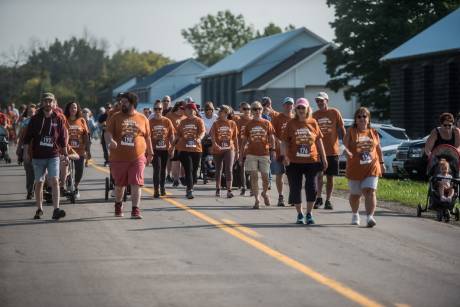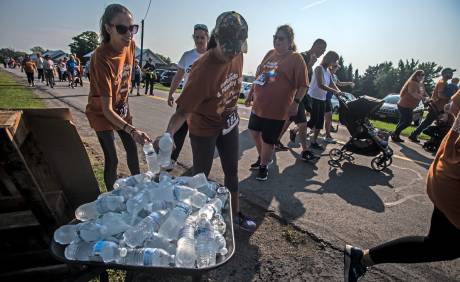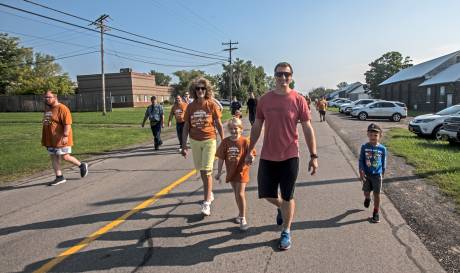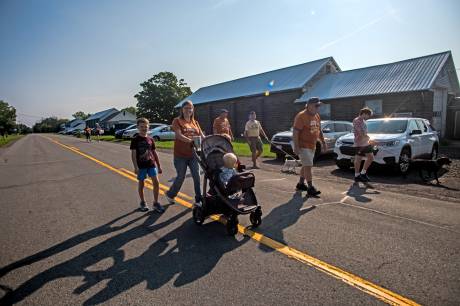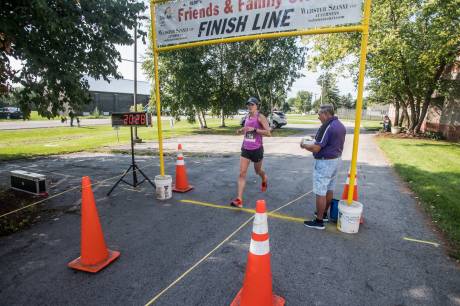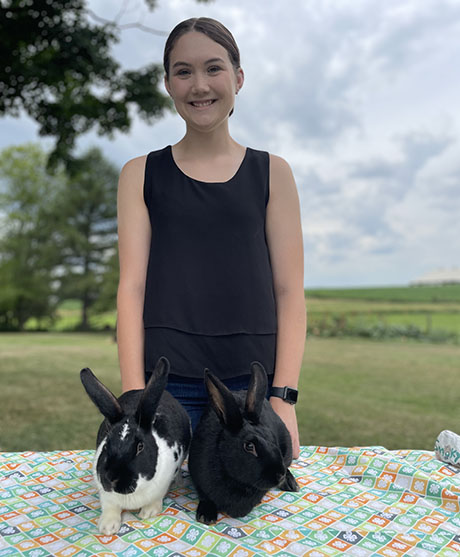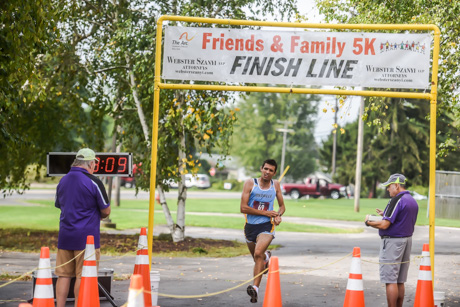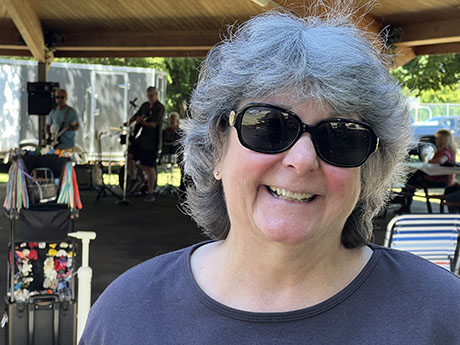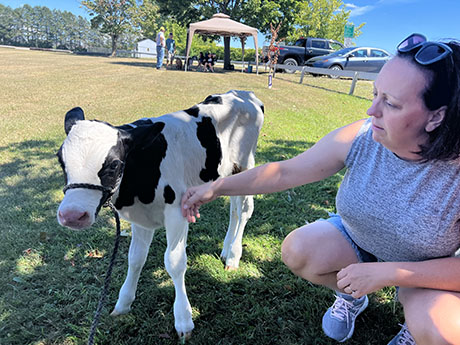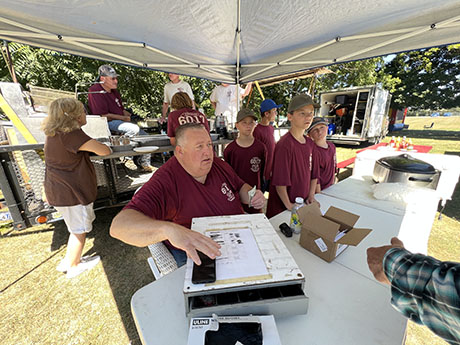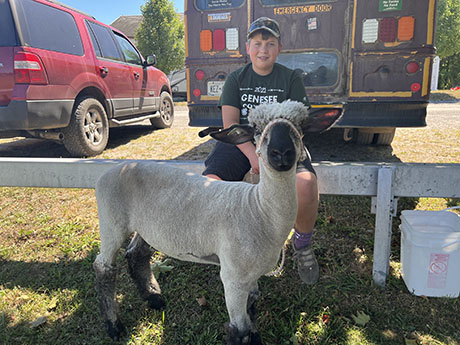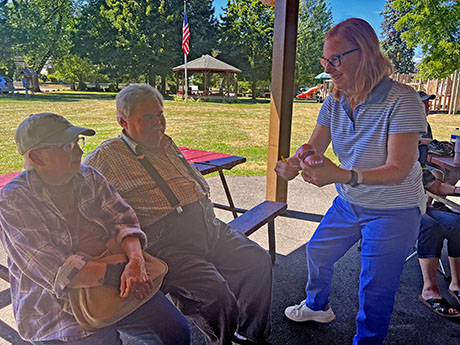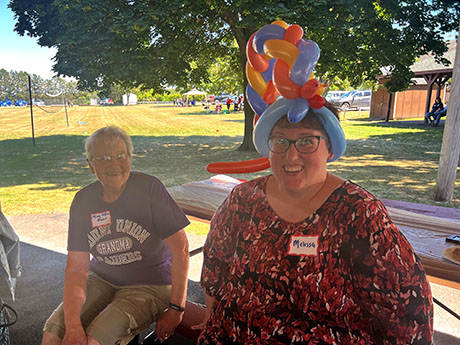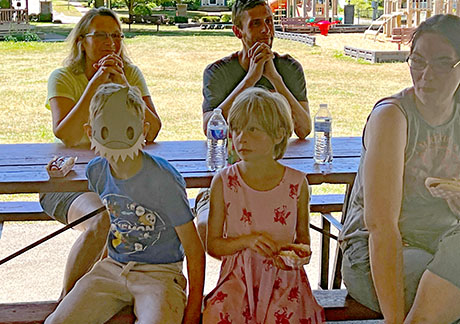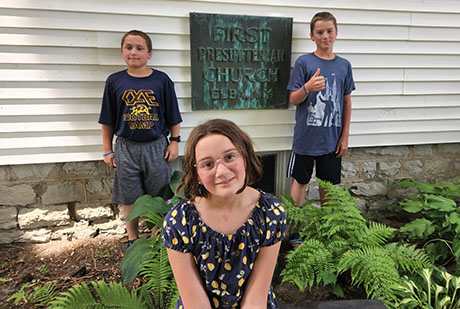Law and Order: Former Alexander resident accused of sexual abuse, extradited from Kansas

Daniel Lee Goodell, 41, of South Volutia Street, Wichita, Kan., is charged with sex abuse 1st. Goodell was arrested by the Sherriff's Office on a warrant in Kansas and returned to New York. He is accused of sexually abusing children less than 11 years old in 2009 and 2010 in Alexander. He was arraigned in Town of Alexander Court and ordered held without bail. Goodell was also arrested by State Police and charged with 12 counts of Sexual Abuse 1st, 12 counts of endangering the welfare of a child, and one count of sexual conduct with a child. The State Police alleged that between 2019 and 2021, Goodell abused children less than 14 years old on multiple occasions. Goodell moved from New York before the criminal investigation was opened, according to State Police. Goodell was extradited from Kansas on Sept. 30. On the State Police charges, he was arraigned in Town of Alexander Court and ordered held on $30,000 bail or $60,000 bond.
Delonta R. Curry, 21, of Batavia, is charged with criminal possession of a weapon on school grounds and criminal possession of a weapon. Curry is accused of possessing a weapon on school grounds on Feb. 13 at 8:26 p.m. on Washington Avenue. He was arrested on a warrant on Sept. 24, arraigned in City Court, and ordered held on bail.
Shawn R. Wisniewski, 33, of Medina, is charged with petit larceny. Wisniewski is accused of stealing from a business on Jackson Street on Sept. 20 at 10:36 a.m. He was released on an appearance ticket.
Chazmar T. Walters, 29, of Le Roy, was arrested on a warrant on Aug. 15. The nature of the warrant was not released. Walters was released and ordered to appear in City Court at a later date.
Daniel T. Henning, 42, of Batavia, is charged with criminal possession of stolen property 5th. Henning is accused of possessing stolen property while on Veterans Memorial Drive, Batavia, on March 28 at 2:55 p.m. He was arraigned in Town of Batavia Court and released on his own recognizance.
Jolene Y. Stevens, 33, no permanent address, is charged with failure to appear. Stevens was arrested on multiple warrants. She was arraigned in City Court and ordered held on $500 bail, $1,000 bond, or $5,000 partially secured bond.
Phillip P. Heale, 44, of Batavia, is charged with criminal trespass 3rd. Heale is accused of being on property he was previously banned from being on. He was released on an appearance ticket.
Evan F. Maynard, 21, of Batavia, is charged with assault 3rd. Maynard is accused of being involved in a disturbance on Sept. 24 at 8:24 p.m. at a location on East Main Street, Batavia. He was issued an appearance ticket.
Justin T. Calmes, 44, of Batavia, is charged with criminal contempt 2nd. Calmes is accused of violating an order of protection on Aug. 29 at midnight. He was released on an appearance ticket.
Jennifer L. Cudney, 41, of Batavia, is charged with DWI, driving with a BAC of .08 or greater, and operating a vehicle with a suspended registration. Cudney was stopped on Sept. 18 at 7:31 p.m. on Bank Street by a Batavia patrol officer. She was released on an appearance ticket.
Jason H. Freeman, 41, of Batavia, is charged with petit larceny. Freeman is accused of stealing beer from a business on Jackson Street on Sept. 18 at 9 a.m. He was issued an appearance ticket.
Jeffrey A. Hewitt, 43 of Le Roy, is charged with driving while ability impaired by drugs, failure to properly signal, driver's view obstructed, unlicensed driver, and aggravated unlicensed operation 1st. Hewitt was stopped by a Batavia patrol office on Sept. 25 at 10:37 a.m. on Summit Street. He was issued an appearance ticket.
Laura B. Beatty, 44, of Batavia, is charged with unlawful dealing with a child 1st. Beatty is accused of providing alcohol to a juvenile at her residence on Oak Street on Sept. 24 at 10:05 p.m. She was issued an appearance ticket.
Brian M. Raphael, 34, of Batavia, and Michelle L. Misiak, 57, of Batavia are charged with petit larceny. Raphael and Misiak are accused of stealing groceries on Sept. 27 from a store on East Main Street, Batavia. Both were issued appearance tickets.
Karrie A. Morrow, 39, of Batavia, was arrested on two bench warrants. The nature of the warrants was not released. She was released under supervision. Morrow was also arrested by State Police on a petit larceny charge. Morrow is accused of stealing merchandise valued at $17.98 from 48 Express Deli on Park Road on Sept. 29. She was issued an appearance ticket.
Renee Lynn Coughlin, 32, of Park Avenue, Oakfield, is charged with falsely reporting an incident 3rd. Coughlin is accused of falling reporting an incident to police on Sept. 21 at 7:30 p.m. on Park Avenue in Oakfield. She was issued an appearance ticket.
Jamie Lee Broadbent, 39, of Federal Drive, Batavia, is charged with petit larceny. Broadbent is accused of entering an unsecured storage room and a vacant room at a hotel at 4371 Federal Drive, Batavia, and stealing items belonging to the hotel. He was released on an appearance ticket.
Hunter Joseph Stetz, 19, of Zimmerman Road, Hamburg, is charged with possession of a forged instrument. Stetz is accused of being in possession of a forged NYS driver's license on Aug. 25 at 8:15 p.m. while at Darien Lake. He was issued an appearance ticket.
Dale W. Gress, 54, of Elba, is charged with DWI and driving with a BAC of .08 or greater. Gress was stopped by State Police on Oct. 5 at 12:13 a.m. in the Town of Batavia. He was issued an appearance ticket.






















